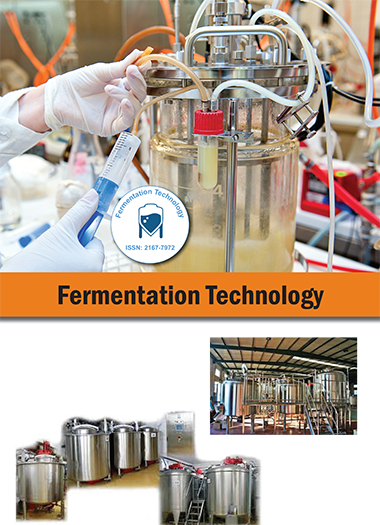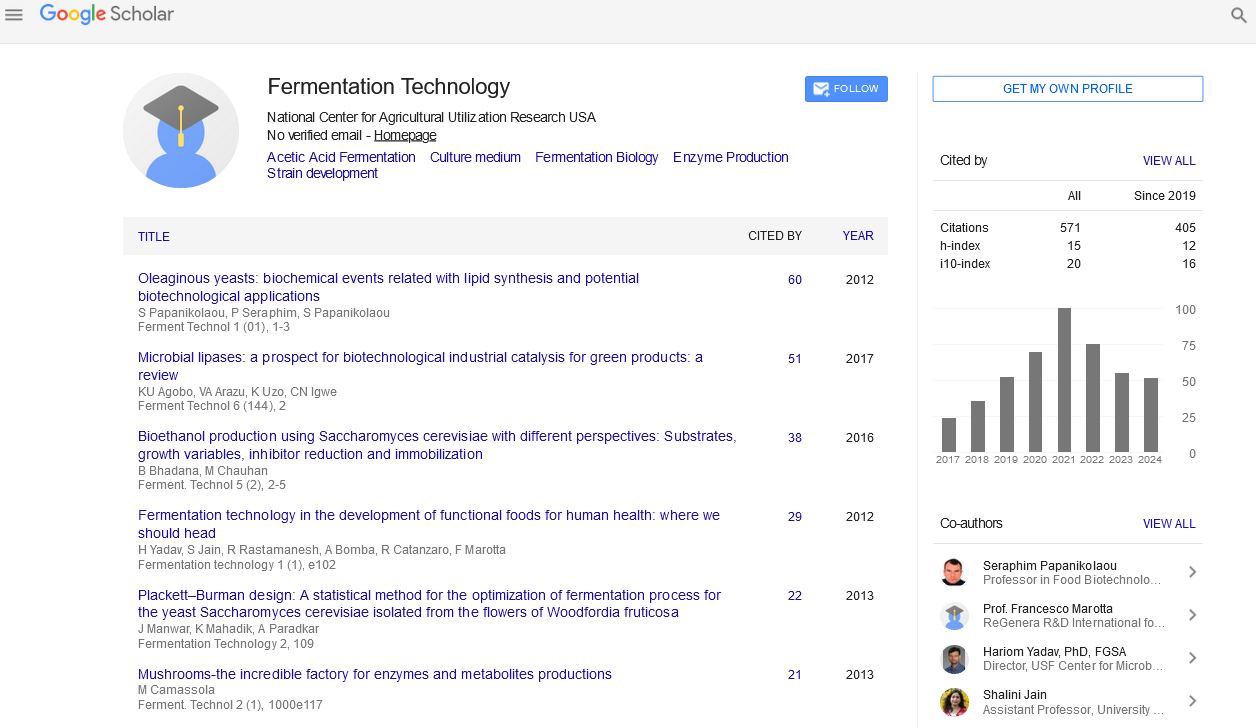Indexed In
- Open J Gate
- Genamics JournalSeek
- Access to Global Online Research in Agriculture (AGORA)
- RefSeek
- Hamdard University
- EBSCO A-Z
- OCLC- WorldCat
- Publons
Useful Links
Share This Page
Journal Flyer

Open Access Journals
- Agri and Aquaculture
- Biochemistry
- Bioinformatics & Systems Biology
- Business & Management
- Chemistry
- Clinical Sciences
- Engineering
- Food & Nutrition
- General Science
- Genetics & Molecular Biology
- Immunology & Microbiology
- Medical Sciences
- Neuroscience & Psychology
- Nursing & Health Care
- Pharmaceutical Sciences
Phytosterol bioconversions by Actinobacteria and their application in steroid pharmaceutical industry
World Congress on Beneficial Microbes: Food, Pharma, Aqua & Beverages Industry
August 25-27, 2015 Valencia, Spain
Marina Donova
Russian Academy of Sciences, Russia
Keynote: Ferment Technol
Abstract:
Phytosterols represent available and low-cost raw materials for steroid pharmaceutical industry. Bioconversion of phytosterols using selected wild-type and recombinant strains of Actinobacteria is an effective way to produce high-valued steroidal drugs and their precursors. Although considerable progress was achieved during last decade in the development of biotechnologies for production of key intermediates from phytosterol, the important task is selection of suitable microorganisms as well as creation of engineered strains to provide improved bioprocesses and to generate novel products. Recently, whole genome sequencing of several steroltransforming Actinobacteria strains was carried out and the phytosterol catabolism associated genes were revealed related to steroid import across the cell wall, side-chain degradation and steroid core degradation as well as to other key steroid modifications. The features of the genomes clarified the capability of the strains to accumulate different androstanes as major products from phytosterol. The transcriptomic studies provided more clear understanding of the role of candidate genes in steroid modifications by the strains. The significance of the findings for creating of effective microbial catalysts for phytosterol conversion is highlighted. The novel data on the production methods of androstenedione (AD), 1-dehydro-AD (ADD), 9α-hydroxy-AD, 11α-hydroxy-AD, 9(11)-dehydro- AD, dehydroepiandrosterone, testosterone, 1-dehydrotestosterone as well as progesterone and 20-hydroxymethylpregnanes from phytosterol using selected and engineered Actinobacteria are presented. The challenges and prospects of phytosterol conversion by actinobacteria are discussed.
Biography :
Marina Donovahas completed her PhD at 1992 and has got a degree of Doctor of Sciences (Biology) in 2006 at the Institute of Biochemistry and Physiology of Microorganisms, Russian Academy of Sciences (IBPM RAS). Since 1998, she is the Head of Laboratory MTOC at IBPM RAS. Her interest cover all aspects of steroid conversions by microorganisms including discovery of novel biocatalysts, investigation of metabolic pathways, the development and scaling up of the biotechnologies. The competence and qualification of her is confirmed by over 70 peer reviewed papers, one monograph and over 10 RF patents.
Email: donova@ibpm.pushchino.ru

